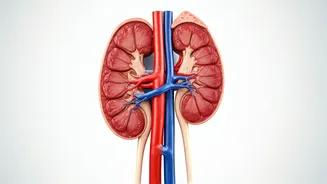The Importance of Kidneys
The kidneys play a crucial role in maintaining overall health, acting as vital filters that remove waste and excess fluids from the blood. They also regulate
blood pressure, produce hormones, and maintain a delicate balance of electrolytes. However, various daily habits can undermine the kidneys’ ability to function correctly, potentially leading to long-term health problems. Understanding these habits is the first step toward safeguarding kidney health and promoting overall well-being. By adopting healthy practices, individuals can contribute significantly to the longevity and optimal function of their kidneys, ensuring a healthier and more vibrant life.
Dangers of Dehydration
Dehydration, a condition where the body lacks sufficient fluids, poses a significant threat to kidney health. When the body is dehydrated, the kidneys struggle to effectively filter waste products from the blood, potentially leading to a buildup of toxins. Chronic dehydration can also contribute to the formation of kidney stones and increase the risk of kidney infections. Maintaining adequate hydration is therefore essential for the proper functioning of the kidneys. Drinking sufficient water throughout the day helps the kidneys perform their essential duties, preventing potential complications and promoting overall health. Simple strategies, such as carrying a water bottle and sipping water regularly, can make a difference in preserving kidney health.
Excessive Salt Intake
High salt intake is another common habit that can negatively impact kidney health. Excess salt causes the body to retain water, increasing blood volume and subsequently blood pressure. High blood pressure puts additional strain on the kidneys, potentially damaging the delicate structures within them over time. Reducing salt consumption is a key step in protecting kidney function. This includes being mindful of added salt in processed foods and cooking at home more often. Furthermore, it's advised to choose fresh, unprocessed foods and use herbs and spices to enhance flavors instead of relying heavily on salt. Adopting these habits can make a notable difference in blood pressure management and promote kidney health.
Medications and Kidneys
Certain medications, including Nonsteroidal Anti-Inflammatory Drugs (NSAIDs), can be harmful to the kidneys if used excessively or over a prolonged period. NSAIDs, often used for pain relief, can reduce blood flow to the kidneys, impacting their function. Overuse of these drugs can lead to kidney damage and, in severe cases, kidney failure. It's essential to use NSAIDs as directed and seek medical advice when using them regularly. For those needing pain relief, discussing alternative medications with a healthcare professional can mitigate the risk of kidney-related complications. Always read labels carefully and adhere to the recommended dosages and usage instructions to protect kidney health.
Mindful Morning Habits
Morning habits also play a role in kidney health. Failing to hydrate sufficiently early in the day, consuming excessive amounts of certain beverages, and skipping breakfast can stress the kidneys. Furthermore, consuming highly processed foods for breakfast can increase the workload on the kidneys. Instead, opting for a balanced breakfast can boost overall health and support kidney function. A healthy morning routine should include ample hydration, a balanced breakfast, and mindful food choices to ensure optimal kidney health. Paying attention to these habits can contribute to the long-term health of the kidneys, ensuring they remain strong and efficient.















